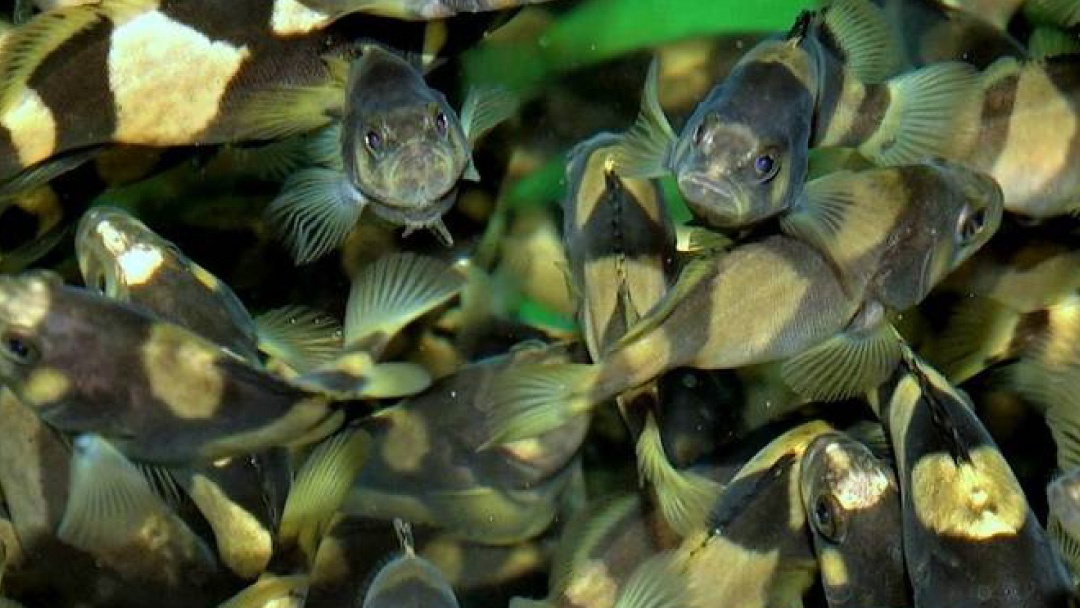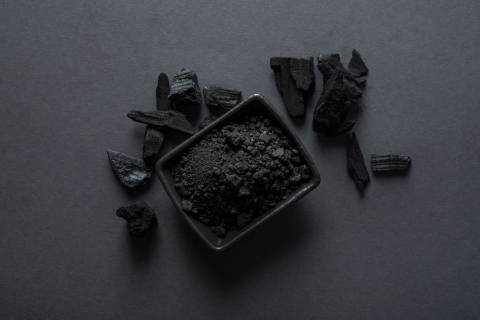 Queensland giant grouper | Credits AWI
Queensland giant grouper | Credits AWI
A German-led consortium, spearheaded by the Helmhotz Centre for Polar and Marine Research (AWI), in collaboration with Oceanloop and Sander, and supported by Ecomarine in Australia, has successfully farmed the Queensland giant grouper (Epinephelus lanceolatus) for the first time in Europe.
This pioneering achievement has been made possible through the use of Recirculating Aquaculture System (RAS), marking a significant step forward in the application of land-based aquaculture technologies for large marine species. The project is part of the Opi-RAS initiative, which focuses on optimising RAS systems for species with high commercial potential.
Juvenile groupers were bred in Australia at The Company One, a hatchery specialising in the year-round reproduction of this species. The juveniles, weighting just 3 grams, were successfully transported to the Helmholtz Centre in Germany, demonstrating that long-distance transportation of live fish is both viable and sustainable, a crucial factor for future commercial operations involving this species.
Extensive research was conducted to evaluate feeding strategies and stocking densities. Findings confirmed that the species thrives at high stocking densities without negative effects on growth or overall health. Trials with densities ranging from 60 to 200 kg/m3 yielded positive results in terms of feed conversion and animal welfare. The survival rate was an impressive 99%, with fish reaching up to 3 kg within their first year and achieving an economically efficient feed conversion ratio (FCR) of 1.0. Additionally, blood stress indicators-including cortisol, glucose, and lactate levels-showed no significant deviations, further confirming the species’ resilience to intensive farming conditions.
The innovation did not stop at farming techniques. The consortium also developed a specialised feed for the species, fine-tuned with over 50% protein and less than 15% fat, leading to significant improvements in growth rates, feed efficiency, and fillet yield. This custom feed was designed and tested in Oceanloop’s research and development (R&D) facility in Kiel, Germany, exceeding initial predictive model expectations.
The commercial phase of the project has already begun under the “Good Grouper” brand, managed by Honest Catch. As a proof of concept, the first market introduction took place at Ikarus, a Michelin-starred restaurant in Salzburg, Austria. Following this success, a direct-to-consumer sales strategy was launched via Honest Catch’s e-commerce platform, with strong market acceptance highlighting the exceptional quality and taste of the fish.
This project not only showcases cutting-edge innovation and international collaboration but also sets a sustainable blueprint for the future of European aquaculture. Backed by funding from the German Federal Ministry of Education and Research (BMBF), the consortium aims to further optimise the farming of Queensland giant grouper in RAS and explore its long-term potential as a commercially viable species for land-based aquaculture.
The success of this initiative underscores the grouper’s potential as a sustainable alternative in land-based aquaculture paving the way for new opportunities in environmentally responsible seafood production for both producers and consumers alike.


